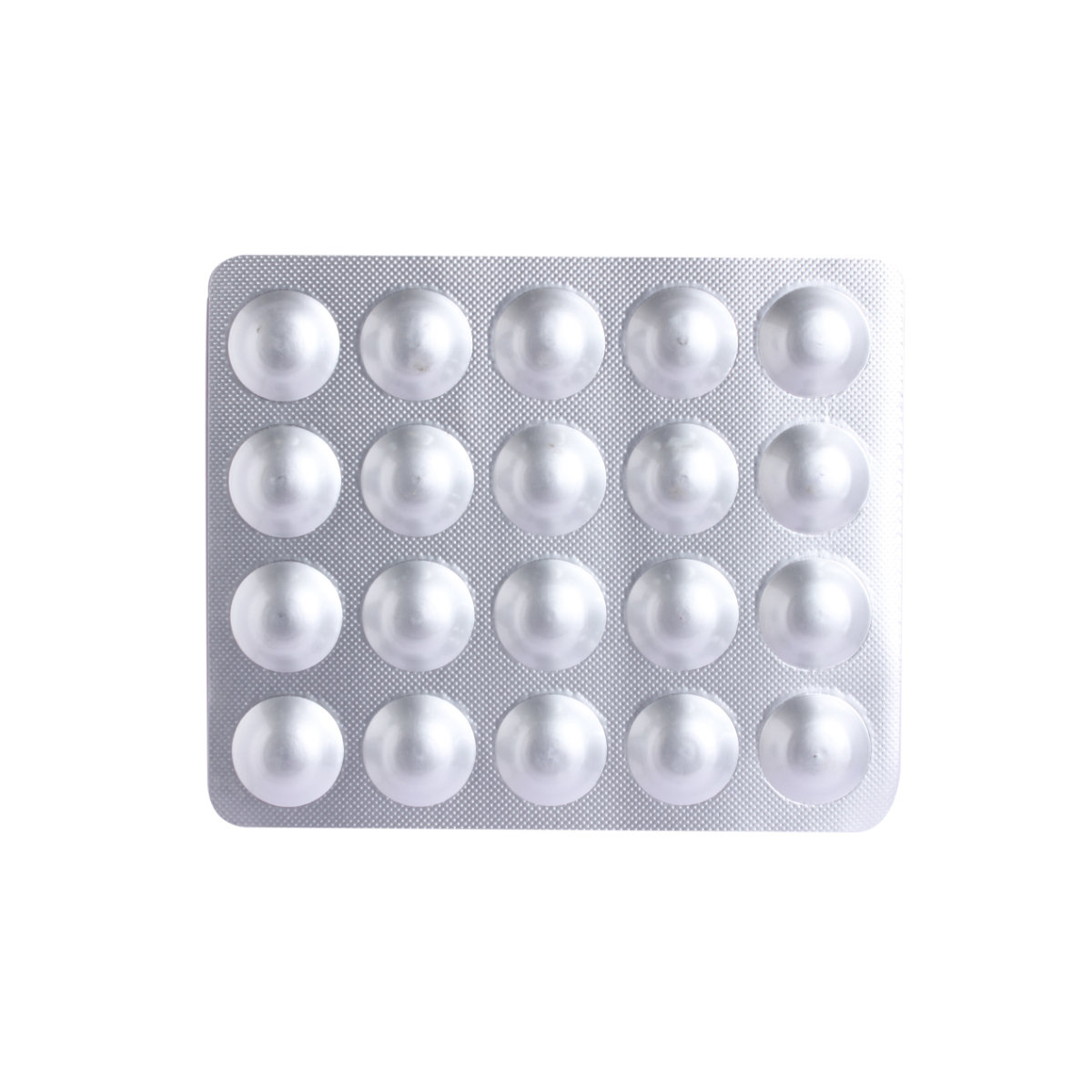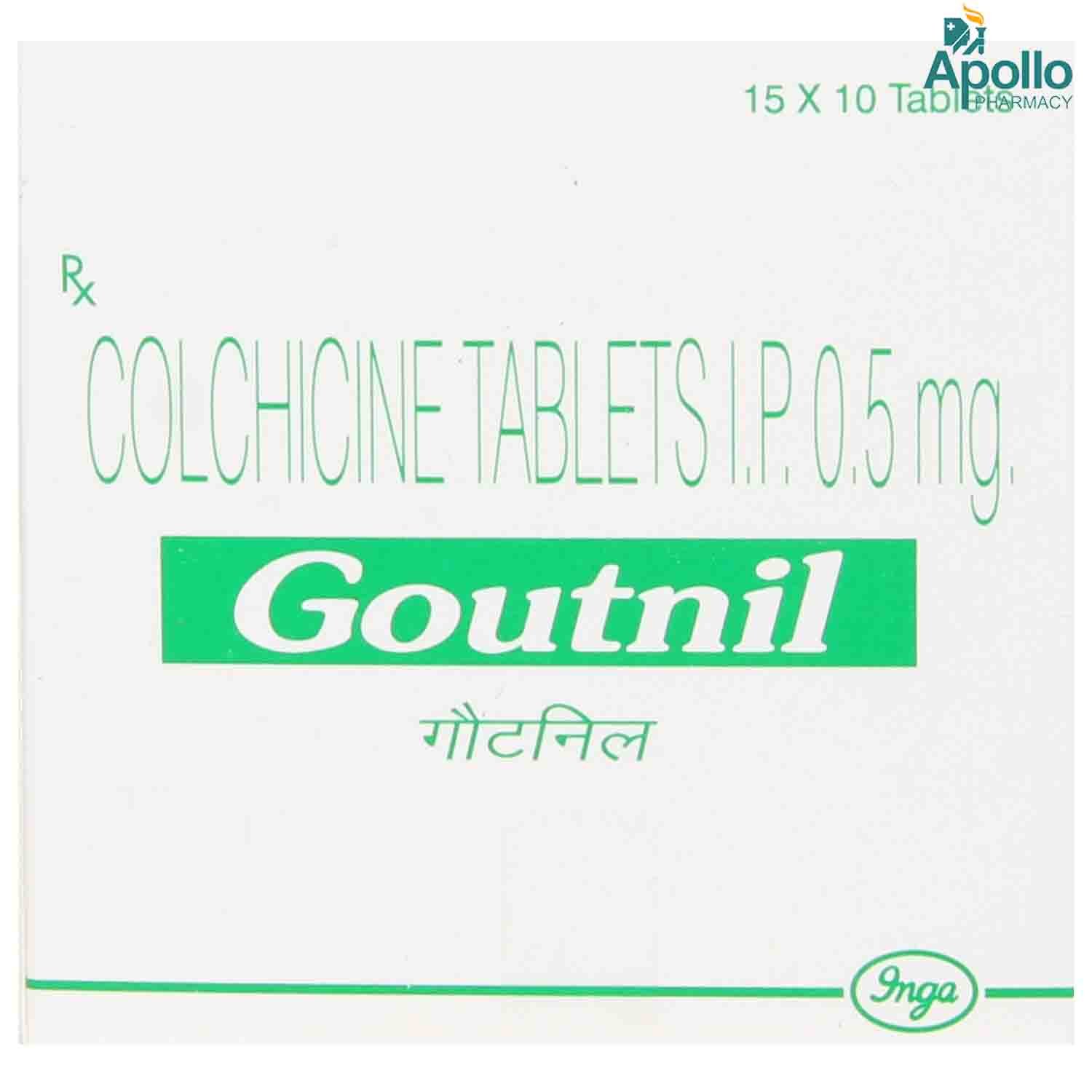Colchicine
About Colchicine
Colchicine is an anti-inflammatory agent and belongs to the class of anti-gout agents. It is used in the treatment and prevention of acute attacks or flare-ups of gout. Gout is a chronic condition that occurs due to the deposition of uric acid crystals in the joints. It is characterized by intense pain and swelling in the affected joints. Colchicine decreases pain, swelling, and inflammation. It also prevents sudden attacks of pain caused by acute gout.
Colchicine contains Colchicine. It works by reducing the inflammation caused by crystals of uric acid in your joints. This helps to reduce pain.
Use Colchicine as prescribed by your doctor. You may experience side effects such as diarrhoea, nausea, and vomiting. These effects gradually resolve over time. However, if the side effects persist, consult your doctor.
Inform your doctor if you are allergic to Colchicine or any other medicines. Pregnant and breastfeeding women should use Colchicine with proper consultation and caution. Keep your doctor informed about your health condition and all your medications before taking Colchicine to rule out any side effects. To treat your disease effectually, continue using Colchicine for as long as your doctor has prescribed it.
Uses of Colchicine
Medicinal Benefits
Colchicine has anti-inflammatory properties. It works by targeting white blood cells (neutrophils). It reduces the inflammation caused by uric acid crystals in the affected joints, thereby reducing pain, swelling, and inflammation.
Directions for Use
Storage
Side Effects of Colchicine
- Nausea
- Vomiting
- Diarrhea
- Abdominal pain
- Fatigue
Drug Warnings
Do not take Colchicine if you're allergic to any ingredient in it. Colchicine should not be used in patients with liver diseases as it increases the risk of muscle damage. It should be used cautiously in patients with kidney problems and blood disorders. Pregnant women, breastfeeding mothers, and children below 12 years should use only with a doctor's advice. Overdose of Colchicine may lead to abdominal pain, severe nausea, bloody stools, and dizziness.
Drug Interactions
Drug-drug interactions: Colchicine may interact with lipid-lowering medications such as atorvastatin and rosuvastatin, the medicine used to treat heart disorders such as digoxin, nonsteroidal anti-inflammatory drugs (NSAIDs) such as naproxen and ibuprofen, anti-fungal drugs such as ketoconazole and itraconazole, drugs used to treat alcoholism such as disulfiram, antibiotics such as clarithromycin, and antidepressants such as nefazodone.
Drug-food interactions: Intake of alcohol may increase the risk of side effects. So, avoid taking alcohol with Colchicine. Avoid eating grapefruit or grapefruit juice as it may also increase the risk of serious side effects.
Drug-disease interactions: Patients with blood disorders such as blood dyscrasias (imbalance of white blood cells, red blood cells, or platelets, or impairment in bone marrow function), kidney diseases, liver problems, or heart disorders.
Drug-Drug Interactions Checker List:
Safety Advice

Alcohol
cautionAlcohol may affect Colchicine effectiveness. So, people should avoid taking alcohol while using Colchicine.

Pregnancy
cautionPlease consult the doctor. Colchicine should be used in pregnant women only if clinically needed, and the benefits outweigh the risks.

Breast Feeding
cautionPlease consult the doctor. Colchicine should be used in nursing mothers only if clinically needed, and the benefits outweigh the risks.

Driving
cautionColchicine will not affect your ability to drive or operate machinery. However, do not drive or operate machinery if you feel sleepy or dizzy after taking your medicine.

Liver
cautionColchicine may cause liver damage. So, it should be advised with caution in patients with liver diseases.

Kidney
cautionColchicine should be used with caution in patients with renal impairment. The doctor may adjust the dose depending on your condition.

Children
cautionColchicine should be used in children below 12 years only when prescribed by a child specialist.
Habit Forming
Diet & Lifestyle Advise
- Maintain a healthy body weight because obesity can lead to joint pain. Please avoid strenuous exercise as it may aggravate your arthritis-related joint pain. Instead, you can stretch and engage in low-impact aerobic activities such as treadmill walking, biking, and swimming. Lifting light weights can also help to improve your muscle strength.
- Increase your intake of glucosamine, chondroitin sulphate, vitamin D, and calcium-rich supplements. Aside from that, turmeric and fish oils can help to reduce tissue inflammation.
- Include fish such as salmon, trout, tuna, and sardines in your diet if you have arthritis or joint pain. These fish are high in omega-3 fatty acids, which aid in the reduction of inflammation (redness and swelling) and the protection of the heart.
- Your sitting posture is critical, especially if you suffer from pain or inflammation. Try to sit as little as possible and only for a short period of time (10-15 min). Place a rolled-up towel at the back of your curve to alleviate pain. In addition, if necessary, a footrest can be used.
- Follow heat or cold therapy by regularly applying a cold or hot compress to the joints for 15-20 minutes.
- Relax by meditating, reading, enjoying a bubble bath, or listening to calming music.
- Avoid drinking alcohol and quit smoking.
Patients Concern
Disease/Condition Glossary
Gout is a type of arthritis in which patients experience severe pain, redness, and swelling in joints. The most common affected area is the joint at the base of the big toe. It occurs due to a condition called hyperuricemia (high uric acid levels in the body). The excess uric acid deposit and crystallize in the joints leading to pain and inflammation. Patients with gout may often experience acute attacks that result in sudden and severe pain.
FAQs
Colchicine contains Colchicine. It works by lowering the inflammation caused by uric acid crystals in your joints. This helps to alleviate discomfort.
Allopurinol is the first-line therapy for gout. It can be used along with Colchicine as there are no interactions between the two drugs. However, it is recommended to take the medicine after consulting a doctor.
Colchicine may lower blood pressure and make you feel light-headed or dizzy.
Colchicine treats gout by acting white blood cells. Therefore, it may show an effect on the immune system.
Never attempt to do it on your own. Consult your doctor before stopping any medicine, don’t stop your medication suddenly.






